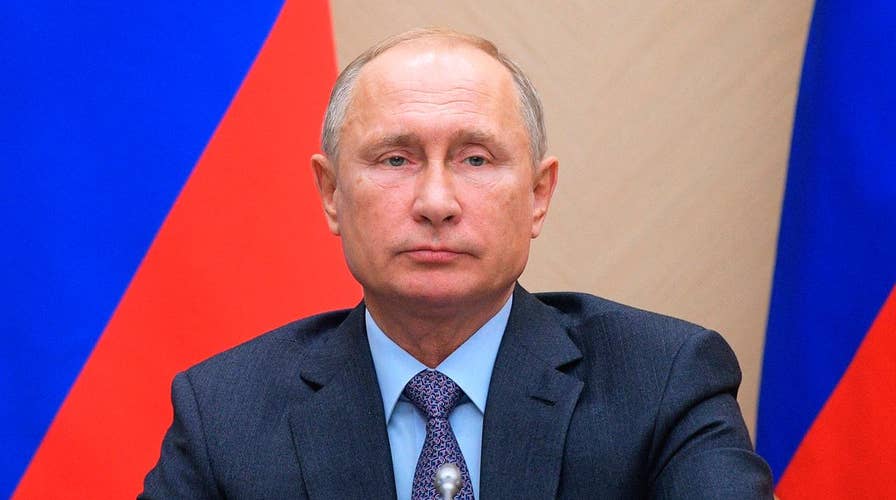Does Trump canceling meeting with Putin change anything?
Former CIA station chief Daniel Hoffman examines how the cancelled meeting could impact the relationship between the two world leaders.
FiveThirtyEight editor-in-chief Nate Silver poo-pooed the notion that Russian trolls really helped President Trump defeat Hillary Clinton in the 2016 election in a series of tweets on Monday.
It all started when MSNBC host Chris Hayes mocked a meme, allegedly produced by Russians, in which Jesus counsels someone addicted to masturbating. Liberal journalist Ted Ganoways joked that Cambridge Analytica's Facebook data identified a group of likely Republican voters who are “compulsive masturbators” – but Silver didn’t appear amused.
“It's far more likely that the Russians were just throwing a bunch of s--- at the wall and seeing what stuck and that basing it on Cambridge Analytica data wouldn't have been meaningfully more effective than doing it at random,” Silver tweeted in response.
"If you wrote out a list of the most important factors in the 2016 election, I'm not sure that Russian social media memes would be among the top 100."
The famed statistician continued: “If you wrote out a list of the most important factors in the 2016 election, I'm not sure that Russian social media memes would be among the top 100. The scale was quite small and there's not much evidence that they were effective.”
Silver then pointed to a Washington Post story that “makes a big deal about a (post-election) Russian social media disinformation campaign on Bob Mueller,” but mocked it for being based on only 5,000 tweets, which is “nothing” in the big scheme of things.
“Platform-wide, there are something like 500,000,000 tweets posted each day,” Silver wrote. “What fraction of overall social media impressions on the 2016 election were generated by Russian troll farms? 0.1%? I'm not sure what the answer is, but suspect it's low, and it says something that none of the reports that hype up the importance of them address that question.”
“What fraction of overall social media impressions on the 2016 election were generated by Russian troll farms? 0.1%? I'm not sure what the answer is, but suspect it's low."
Silver continued his explanation on Tuesday, noting that “it's pretty bad to take any residual difference between expectations and reality and attribute it to Russia,” and felt he could sum up 2016 in one tweet.
“Hard for a party to win 3 in a row; Clinton unpopular for many reasons, including MSM fixation on email; Trump also unpopular, but GOP voters were loyal and racially-tinged populism worked among non-college whites, who are overrepresented in Electoral College,” he wrote.
The tweets came as new reports for the Senate Intelligence Committee outlined the scope of Russia's influence campaign during the 2016 presidential election, describing it as a sophisticated and multifaceted effort to target certain groups and sow political division among the public across social media platforms.
Silver isn’t shy on social media and was recently mocked for claiming Republicans are critical of incoming Democratic Rep. Alexandria Ocasio-Cortez because of her “race and gender.” He argued that the animosity toward the self-described Democratic Socialist is based in bigotry, which prompted criticism from conservatives.
Silver eventually offered up this clarification:
“Put differently, New Yorkers are very good at trolling, and Washington has extreme troll-vulnerability. It's always made for a mismatch but more pronounced now that we're in the Golden Age of Trolling. We may need to move the capital back to Philly to keep it a fair fight.”
Fox News’ Joseph A. Wulfsohn contributed to this report.













































